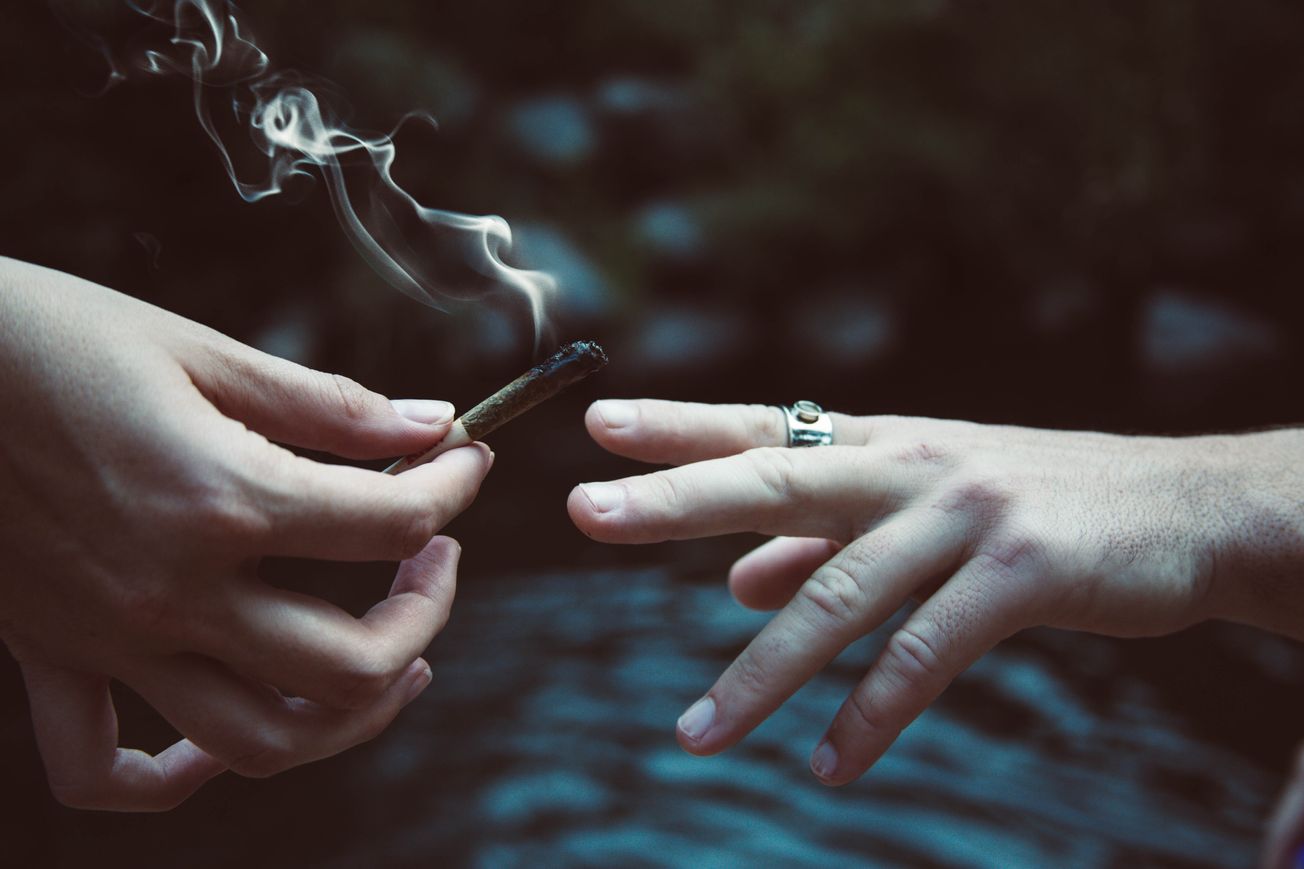By Fizaa Halani, Third Year, Dentistry
In my first week as a fresher at Bristol, I was shown a TikTok of the 'put your finger down if' challenge. This version of the challenge was specific to the University of Bristol and featured a girl putting her finger down to the sound of 'put your finger down if you did your first bump of ket this week'.
I’d be lying if I said I was surprised - Bristol’s reputation precedes it. Many people have described Bristol to me as a 'fun' university, with 'fun' being synonymous with 'everyone takes a lot of drugs and stays up until the crack of dawn'. An anonymous survey of 300 University of Bristol students revealed that 77 per cent had taken illicit drugs for recreational purposes, and the city itself has some of the highest levels of drug taking in the country.
Unless you’ve lived in or spent a considerable amount of time in a city, most of your information about it comes from word of mouth or media. So shows such as 'Skins', 'Outlaws' and 'Drugsland' only contribute to Bristol’s reputation as a drug hotspot.
Interestingly, the University of Bristol’s growth rate for applications was 15.89 per cent in 2006/2007, coinciding with the year that Skins came out. This begs the question: does Bristol attract people wanting to live this lifestyle or does it breed them?

Drug culture is definitely normalised at the University. One student told me that 'she wouldn’t bat an eyelid if someone whipped out a class A at the pub'.
However, this extremely relaxed attitude can often make students second guess themselves and their own convictions. Even in other situations, we often derive our sense of right and wrong from our environment and social cues, a phenomenon best shown in the social conformity experiment by Solomon Asch.
In the experiment, the participant was asked to match the target line to either A, B, or C. Despite knowing the correct answer, participants routinely answered wrong when the people around them gave an incorrect answer. In total, 75 per cent of the participants socially conformed.
Drug culture is definitely normalised at the University- with one student telling me that 'she wouldn’t bat an eyelid if someone whipped out a class A at the pub”.
This study is even more shocking when you consider that it was conducted amongst much older participants, rather than young adults just entering university.
Many of us come to university with a lack of identity and a much more malleable personality than we later grow to develop. If fully grown adults can be swayed by a room of people telling them the sky is green, how are we supposed to act when we do not even know the answers?
Our environment is so influential on us that it can be hard to distinguish what we really want from what we are told we should want.
As human beings, we bond with each other through shared memories and experiences. Sharing physical presence but experiencing the world through different states of mind, however, can cause difficulty connecting to those around you.
The collective experience of a certain mindset also leads people to seek out activities that are more enjoyable whilst on the drug, further fuelling this rift. One student reported feeling 'isolated' and commented that recreational drug use creates an 'exclusive environment' that can polarise social groups into those who take drugs and those who don’t.
This all contributes to the notion that implicit peer pressure has a strong grip on our lives. This type of peer pressure stems more from societal pressures in your environment than from the more direct 'stop being a pussy, just do it.'
It is much more difficult to pinpoint, especially because the resultant change in your thought pattern may be subconscious. We frequently succumb to this kind of pressure because we want to connect with and feel a part of a group.
I also believe that giving in to peer pressure carries a negative stigma, perhaps even more so than creating peer pressure in the first place. People are reluctant to admit that their environment has consciously or unconsciously influenced them in many situations.
When I interviewed people for this article, I noticed a significant difference in responses when I asked, 'Have you ever taken anything because you felt pressured?' versus 'Would you have taken it if everyone else had not?'.
In an age when we all take pride in being independent thinkers, the idea that our choices are not entirely our own is terrifying.
We frequently succumb to this kind of pressure because we want to connect with and feel a part of a group.
Whichever side of the spectrum we lie on, we are all unwittingly playing a role in this bizarre environment. The University is clearly aware of this and does fund harm reduction programs and even distributes free drug testing kits.
However, to stop and think about the effects of our actions is to deny the risk-taking, impulsive lifestyle we are sold as students. This also creates problems for us in thinking long-term, about what happens when we leave university and go into the so-called 'real world'. Is there a button we press that undoes years of conditioning the day we leave university? Or is there a real chance we have created a world so far removed from society that reality will shock us to our core?





